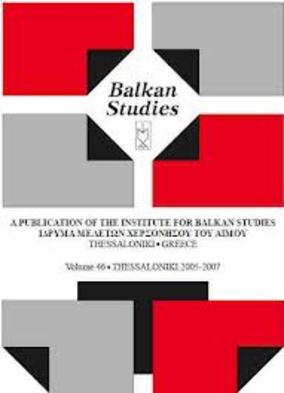The kidnapped identity and the myth of the book burning
Part of : Balkan studies : biannual publication of the Institute for Balkan Studies ; Vol.42, No.1-2, 2001, pages 79-88
Issue:
Pages:
79-88
Section Title:
Articles
Author:
Abstract:
The national identity could be seen as an outcome of the deliberate effortsof some kind of élite to consolidate an ethnic community. Every identity needsa mythology to legitimate it for the others and in the consciousness of itsmembers. Such mythology defines the Own and distinguishes it from theAlien, it combines several elements -the glorious past, some key figures andthe Enemy, who always must be available. To obtain the status of mythologythe narratives about them must manifest a universally recognized throughabout the community, to define its identity and the laws it submits to.One typical myth from the time of the Bulgarian national Revival tells usthe story of the burning of some old Bulgarian books. For its contemporariesits deep meaning is to explain one significant absence and to point at theguilty kidnapper. These two operations must forge the national identity. Theevents take place in the 1820s and 1830s in the town of Tarnovo when Ilarionfrom Crete (1821-1827, 1831-1838 “Exarh of the Hole Bulgaria”), but theyrepeat something happened in ilio tempore.The situation could be described like this:The old books as symbol and testimony of the desired and prestigeousidentity are missing or are not enough. There is an Enemy for whom theythought that this absence is favourable, hence he must be blamed for it and his guilt is accepted a priori. Someone throws up a piece of unconfirmed informationfrom the past and it is repeated deliberated from many outer people.This paper traces the spring up of the myth and examines its mostimpressive and representative variations and looks for the mental constructsthat form its basis. It also shows the attempts to disagree with the myth andits connection with the struggle for separation from the Patriarchate.
Subject:
Subject (LC):




